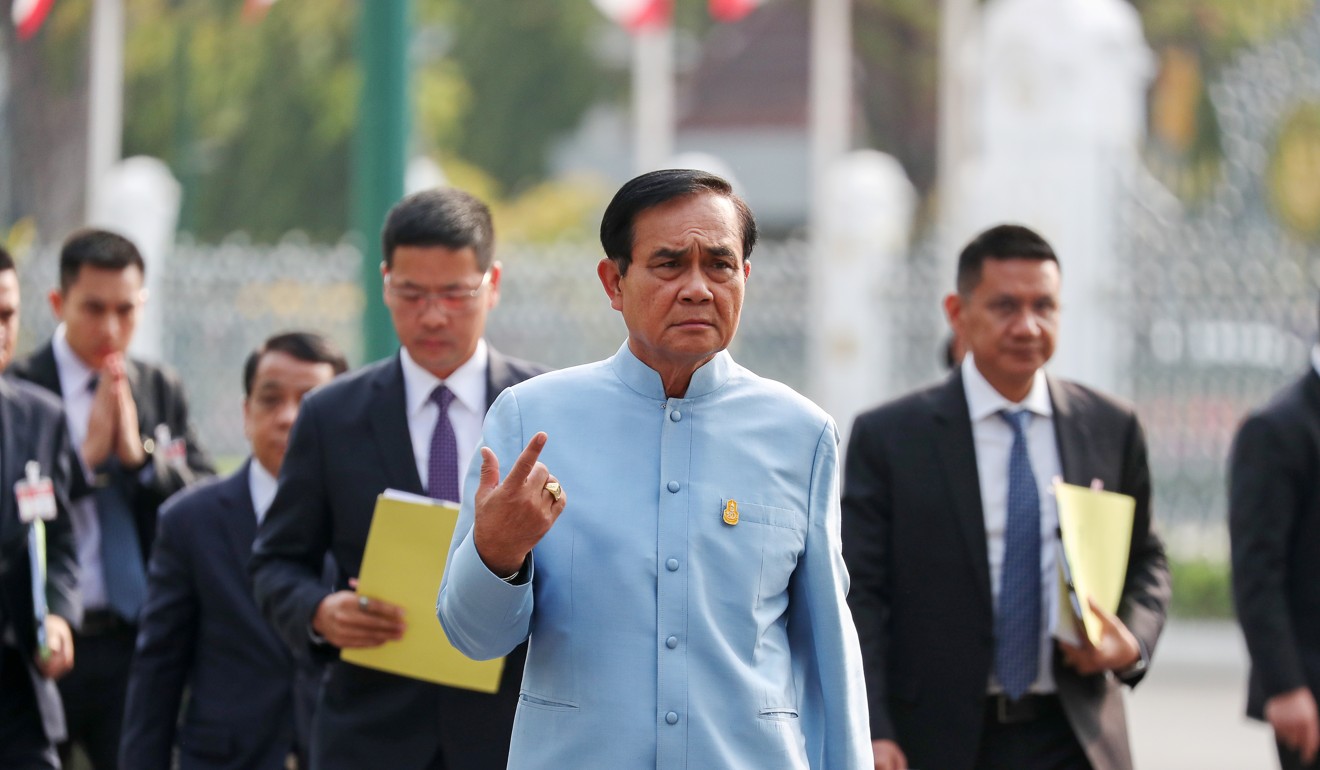
Why did Thailand’s junta bother with its farcical election?
- Prayuth Chan-ocha has turned these polls into an exercise in thwarting the Shinawatras
- Which begs the question: why carry out a vote if you’re not committed to the underlying principles?

Chiang Mai is swathed in smog. It’s opaque, oppressive and disconcerting.
There’s no horizon. The air is yellowish and way, way above acceptable health levels: the result of forest fires and local slash-and-burn agriculture crashing head-to-head with El Niño, the global weather phenomenon.
But the sickly air quality – earlier in the year Bangkok was similarly shrouded in pollution – serves only to match the obfuscation and uncertainty surrounding Thailand’s first contested elections in over eight years.
“We’re all frustrated but there’s nothing we can do about it,” Thitima Pitivarawong, a 38-year-old tutor from the northern city, says of the March 24 polls.
And it isn’t as if these elections were unexpected.
Prayuth Chan-ocha, the general-turned-junta leader, has been discussing and planning the return to democracy and civilian rule from the moment he seized power back in 2014 after toppling the prime minister Yingluck Shinawatra – the younger sister of Thaksin Shinawatra, himself ousted 13 years ago.

The constitution has been amended and election rules changed. All of this is fine, except that the net result has not been a strong electoral mandate.
Instead, it has been a farce – from the Election Commission head calling for a calculator on live television to the countless delays and allegations of vote-tampering.
The core problem is simple.
Prayuth and his cohorts have failed to grasp what democracy means.
Let me explain the concept. After all, we in Asia have been grappling, none too successfully, with the whole business of what democracy is and isn’t.
Malaysians, for example, are only recent converts and just under a year ago, at that.
Well, here goes: it is a government by the people, in which sovereign power lives with the voting population.
Now, this power can be exercised directly (as it was in cities such as Athens and Thebes thousands of years ago) or by duly elected representatives. This is where the process of elections – especially their fairness and integrity – becomes critical.
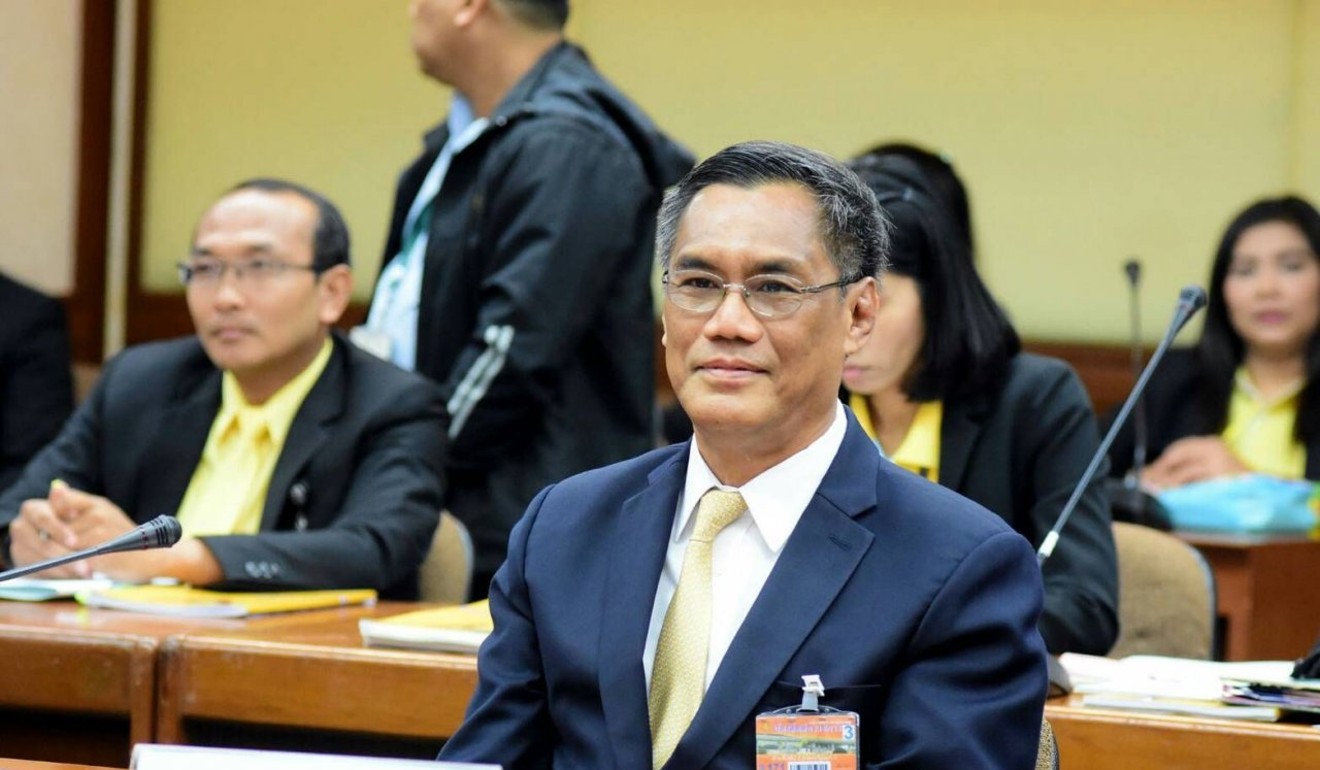
It’s all quite straightforward when you think about it.
However, for Prayuth, these polls haven’t been about the reintroduction of democracy so much as an exercise in thwarting the Shinawatra family and their allies.
Now I’m not a fan of the former prime minister – he presided over the 2004 Tak Bai massacre – but so long as he remains the kingdom’s most popular figure, any “return” to democracy will be all about the Dubai-based plutocrat.
This begs the question: why bother with the whole exercise when you know you’re not committed to the underlying principles? Why raise public expectations that you cannot match? Why not continue as a military junta indefinitely?
Of course, there are other factors.
There is a new monarch, King Vajiralongkorn Bodindradebayavarangkun and his coronation is slated for early next month.
King Bhumibol Adulyadej, his late father, reigned for just over 70 years, becoming in turn a greatly loved and respected ruler. Understandably, his son is eager to see the kingdom returned to the democratic fold.
However, democracy can be both unforgiving and flighty. Neatly laid plans do not always work out – especially when they’re at loggerheads with reality.
So, what should happen next? Is the majority Buddhist Thailand to be consigned to an endless round of coups (19 since 1932)?
Can the cycle be broken?
It is telling that the junta seems to be on the defensive, despite having almost all rules in the election bent in their favour.
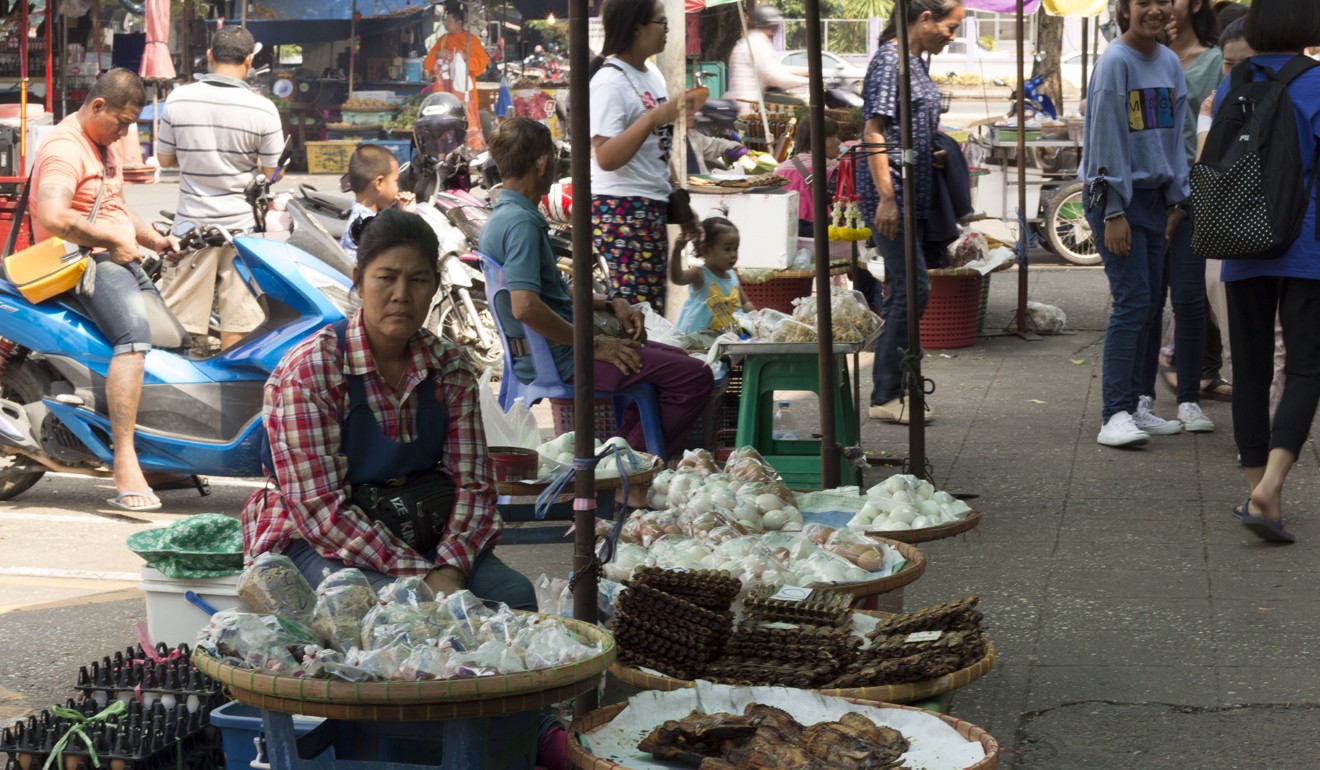
Thailand’s past coups allowed its elites to regroup, for the nation to basically do a “hard reset”.
Power was temporarily vested in the hands of neutral arbiters (the royal court, military, judiciary and civil service), while politicians cooled their heels and waited for civilian rule to return.
But what has changed this time is that the Bangkok elite’s hatred of the Shinawatras mean they can no longer be honest brokers.
They are now directly involved: partisan players no longer seeking to “reform” Thailand’s democracy or closing the socio-economic gaps between Bangkok, the south and the pro-Thaksin North and Northeast.
The goal is now simply to keep Thaksin and his confederates out of power at all costs, whatever the cost to the kingdom and its institutions’ integrity.
Meanwhile, the economy has stagnated.
According to the World Bank, growth rates have been hovering around 3-4 per cent over the past few years, a far cry from the 4-7 per cent enjoyed during Thaksin’s premiership.
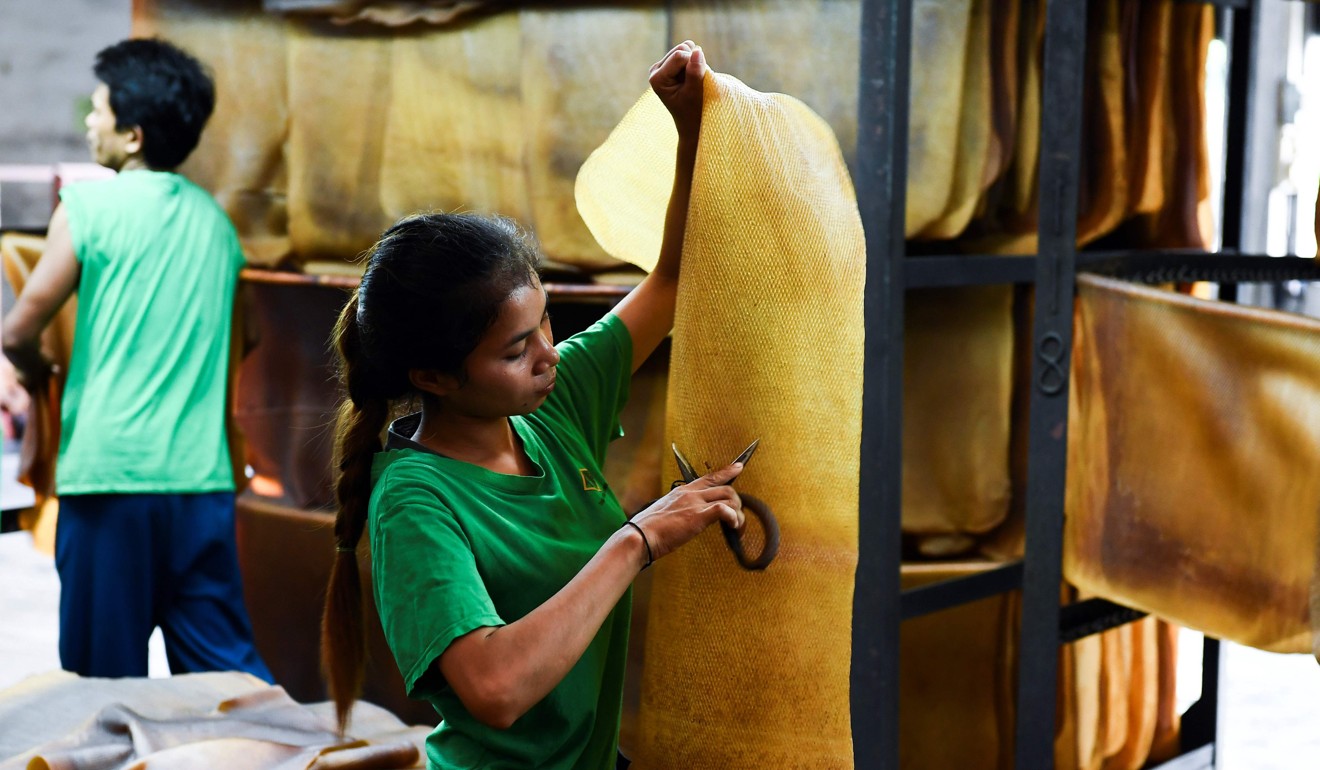
The failure to cope with the fall in rubber prices (which dropped drastically from US$6.26 per kg in February 2011 to US$1.65 in February 2019) means the agrarian distress which sent voters to Thaksin in the first place has not been resolved and in fact, has worsened.
Moreover, the rise of Thanathorn Juangroongruangkit (aka “Ake”) of the Future Forward Party (with its pesky ideas to slash military spending and reduce income inequality) shows that non-royal figures will continue to capture the public imagination even after Thaksin recedes from the stage.
Clearly, Thailand needs something more to hold itself together beyond the old ideas of Nation-Religion-King.
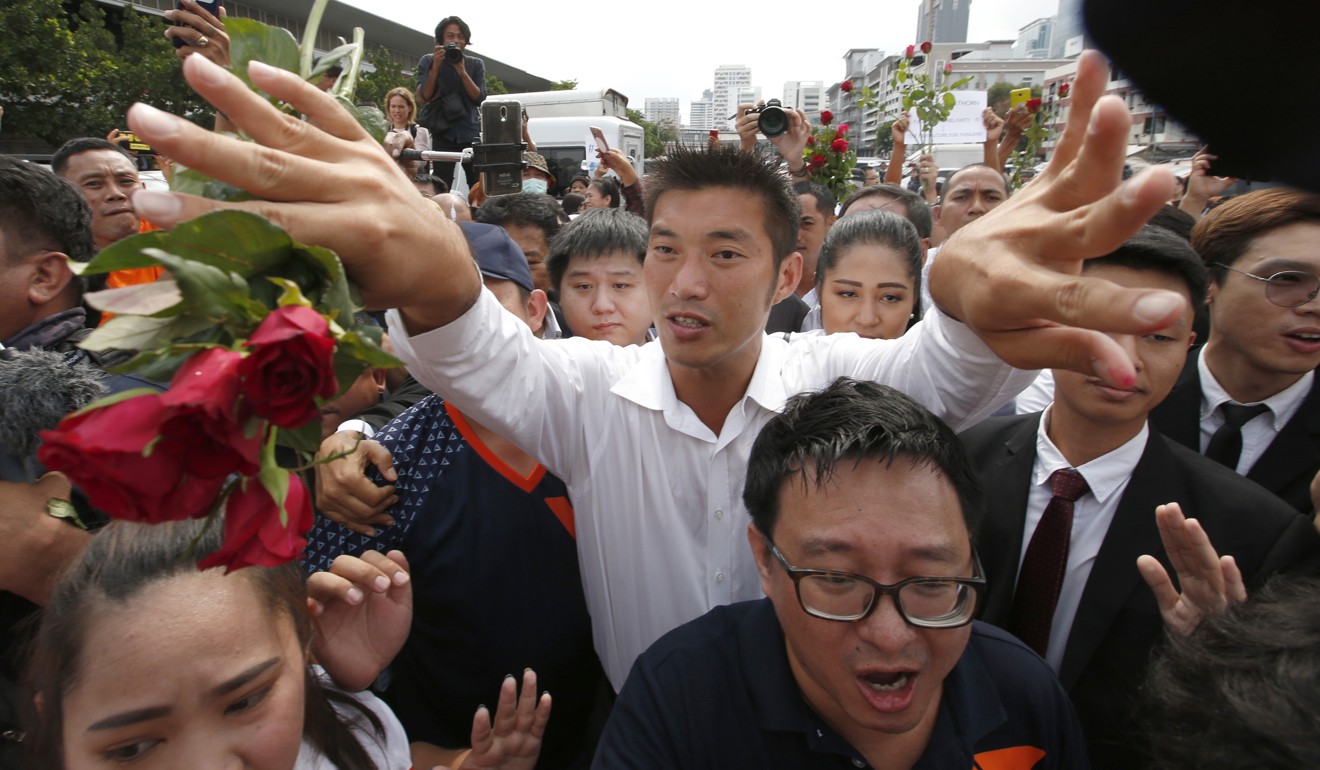
A compromise is needed between Thailand’s deeply fractious camps. The fresh-faced billionaire Ake with his surprisingly large younger generation support base must play a central role in taking the kingdom forward as we enter the realm of realpolitik.
Again, one cannot help but marvel at the unfortunate symbolism of the northern smog.
Like the sky in Chiang Mai, Thailand’s future, regrettably, remains hazy.